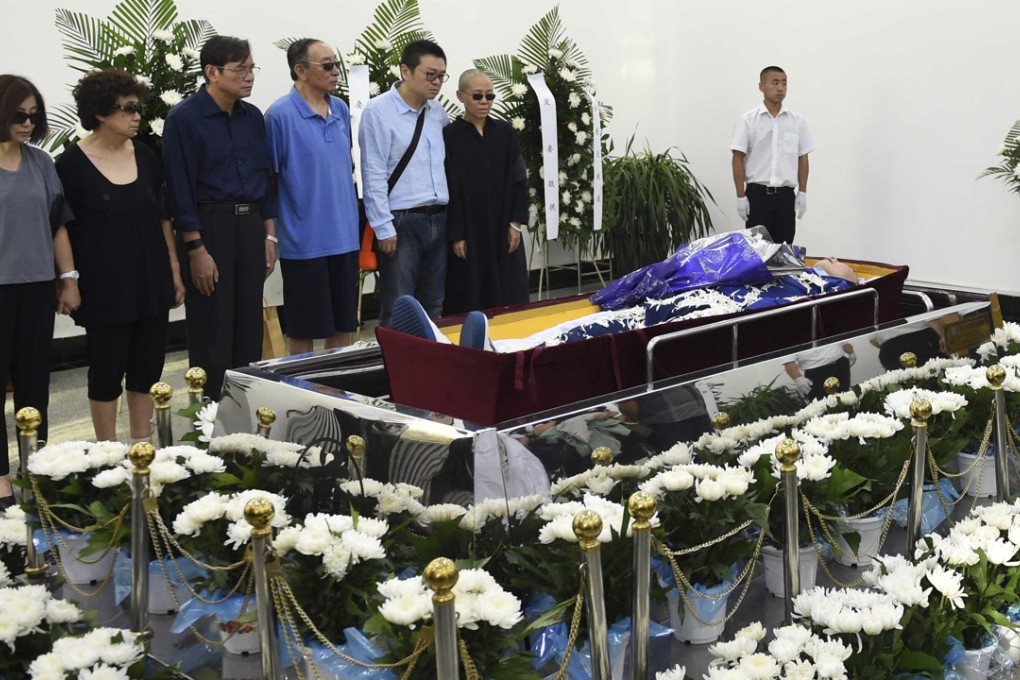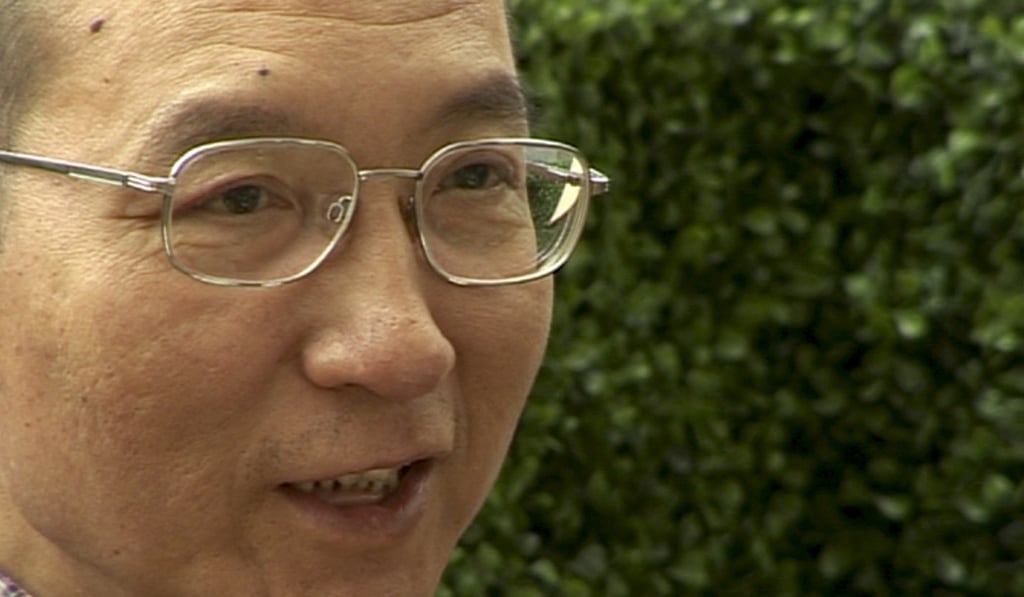China stages ‘hasty’ cremation of Liu Xiaobo and has his ashes scattered at sea
Activists outraged at ‘humiliating’ arrangements, as Nobel laureate’s brother appears at press conference to thank Communist Party

Nobel laureate Liu Xiaobo, who died in custody on Thursday, was cremated and had his ashes scattered at sea on Saturday in a state-choreographed service that friends and activists said was aimed at preventing supporters from honouring him.
“It was a deliberate move by the Chinese government to hastily arrange the funeral so no one could visit his body, which would evoke the most memories,” said activist Hu Jia. “It’s humiliating to a Nobel winner.”

Bao Tong, a former top aide to late Communist Party leader Zhao Ziyang, said the rush to hold a funeral and cremation was because authorities were “afraid of uncontrollable consequences”.
After a short memorial service, the Shenyang city government held a press conference for foreign media at which Liu’s eldest brother, Liu Xiaoguang, expressed his gratitude to the party – which imposed the 11-year jail term on his sibling and denied him overseas treatment – for catering to the family’s wishes on medical care and funeral arrangements. He described the funeral as “perfect”.
Liu Xiaobo’s widow, Liu Xia – who was not at the press conference and can be seen in official video footage of the service being supported by her brother, Liu Hui – wished to thank the media for their “heartfelt” care, Liu Xiaoguang said. He added that Liu Xia was frail and needed medical attention.